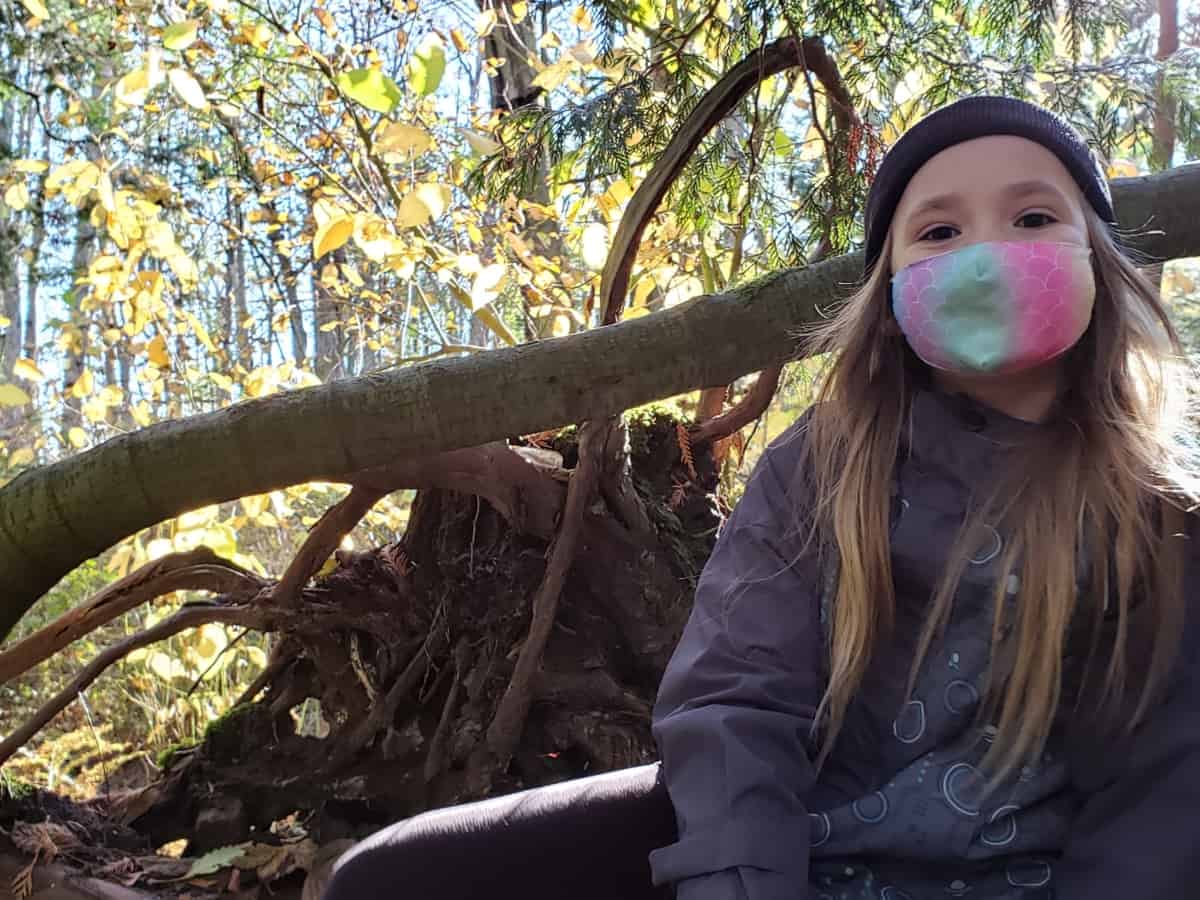
Connections: Outdoor Learning During a Pandemic
This Fall, in Whatcom County, like counties across the nation, students started school on an “all remote” schedule. While districts and funders distributed hot spots for families without reliable internet at home and worked to ensure all students had laptops, no amount of fancy software or tech equipment could span the increasing gaps the pandemic has placed on academic achievement and child care.
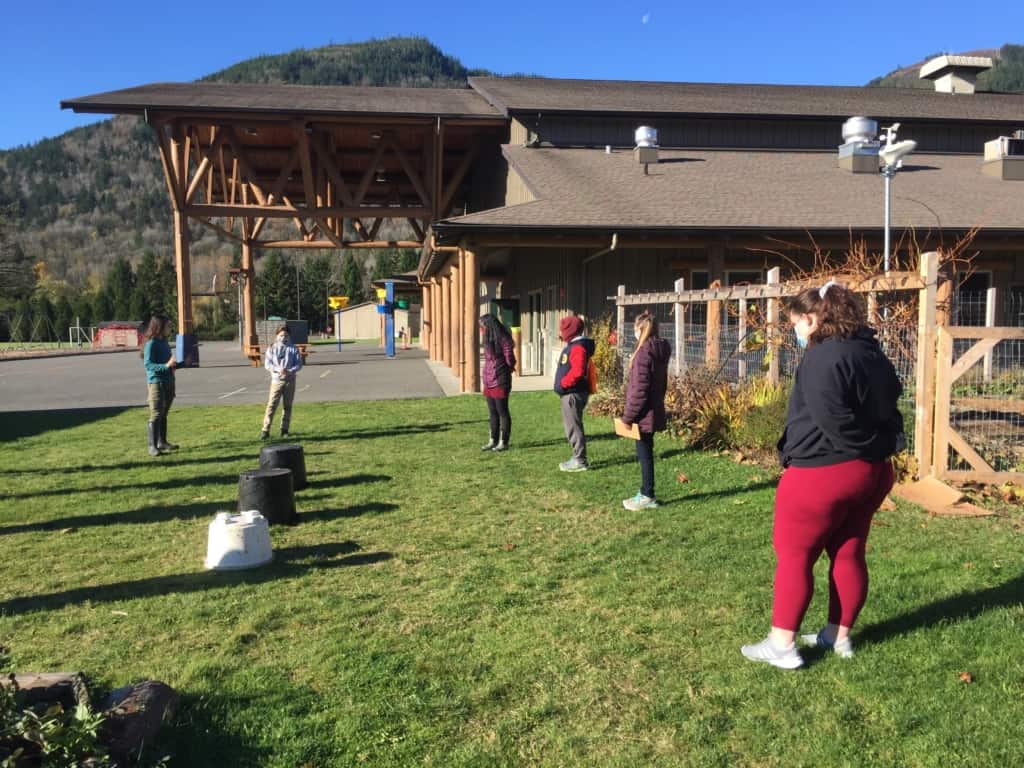
In order to address this emergent community need, organizations that are part of Whatcom Coalition for Environmental Education (including North Cascades Institute) quickly mobilized to offer Connections. This new program is designed to augment virtual learning and provide students with enriching time outdoors in a lower-risk environment than traditional school.
Connections started this Fall in three school districts involving collaboration across 13 agencies and organizations, school districts, and local funders to provide opportunities for peer-to-peer interactions, academic enrichment, and access to adult mentors for students furthest from opportunity. As a part of Connections, students receive transportation on school busses (kept at partial capacity to increase distancing), plus breakfast, lunch, and snacks provided by the districts.
History of Connections
In 2019, North Cascades Institute became a member of the Whatcom Coalition for Environmental Education (WCEE), founded earlier last year by Keren Bitan and Ben Greené of Tandem Impact (a mission-driven strategy consulting firm). WCEE is a program of the Whatcom Community Foundation, currently led by Keren and Ben. Prior to COVID-19, the Whatcom Coalition for Environmental Education established a mission of expanding and deepening access to environmental and sustainability education for every child across Whatcom County, and worked with districts across the County to establish more equitable access to environmental science education.
This past Spring, Vamos Outdoors Project responded to the sudden loss of access to childcare for migrant farmworker families and the growing digital divide in our community by creating a pilot outdoor summer school program at Kulshan Middle School in Bellingham. Vamos was joined by Wild Whatcom and the Whatcom Mountain Bike Coalition to support this summer program. Vamos’ summer migrant childcare program, with its collaborative model, demonstrated how community-based organizations could work together, and with schools, to address the needs of the students furthest from opportunity.
Over the summer, WCEE organizations developed models to present to school district partners for how outdoor spaces and educators could be instrumental for equitable, healthy and safe learning. Through conversations with school district leadership and generous funding from the Whatcom Community Foundation, Bellingham Public Schools Foundation, Mount Baker Foundation, and Mount Baker Student Trust, Connections programs took shape in Mount Baker, Bellingham, and Blaine school districts. The program model was tailored specifically for each district, but all three districts selected students who could benefit the most from additional support.
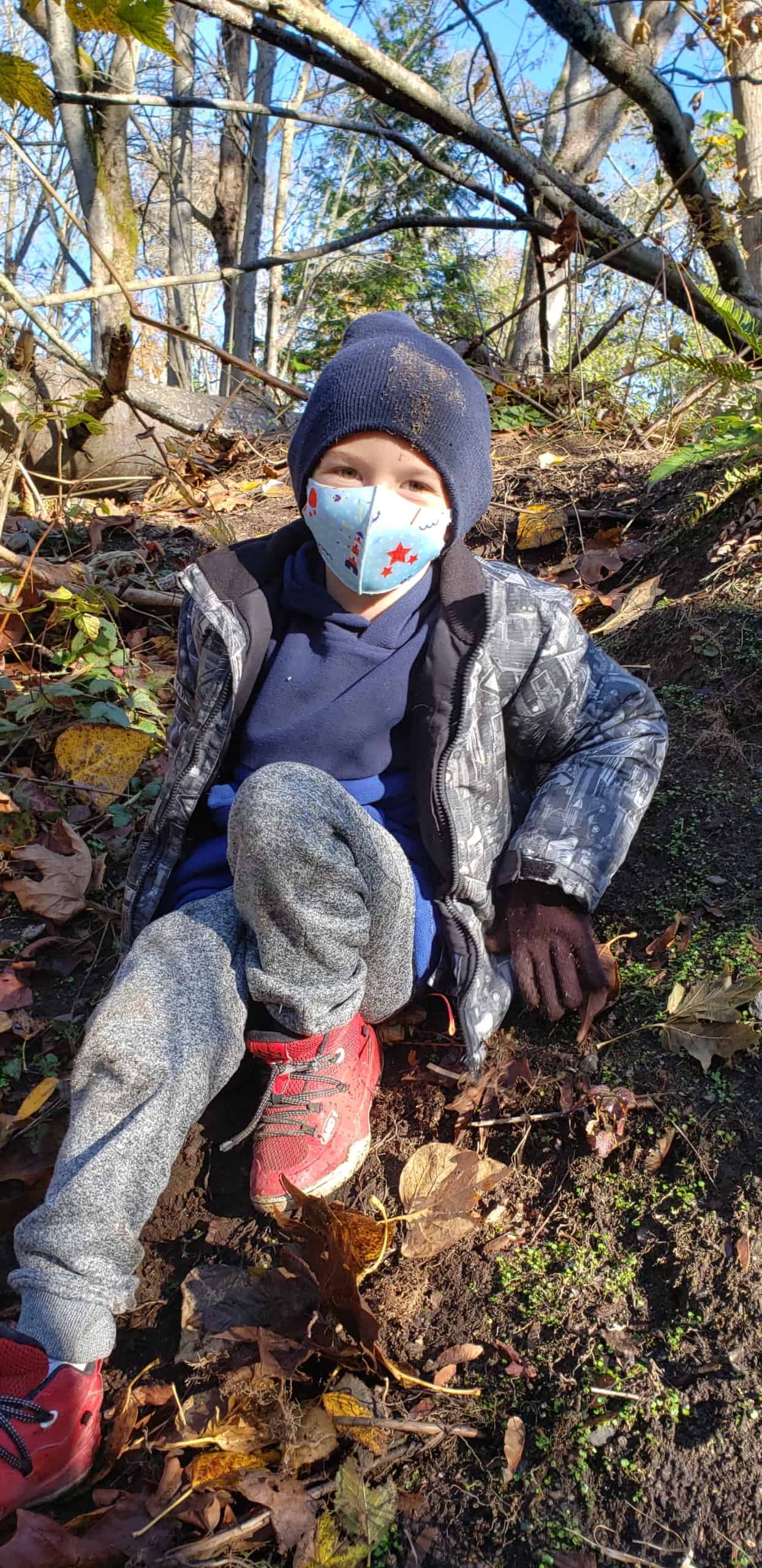
The primary goals of Connections are to increase equity in academic progress and alleviate the social and emotional impacts of the ongoing pandemic by providing an environment for young people to experience the outdoors, interact with adult mentors, and gain practice with peer interactions that lead to teamwork and empathy. Connections leverages the experience and expertise the districts have of their individual students’ needs and the resources and outdoor education expertise of local youth-serving nonprofits and other agencies. Organizations pooled their outdoor gear and built on each other’s strengths to offer this opportunity for students to gather and learn from the rich natural world we call home.
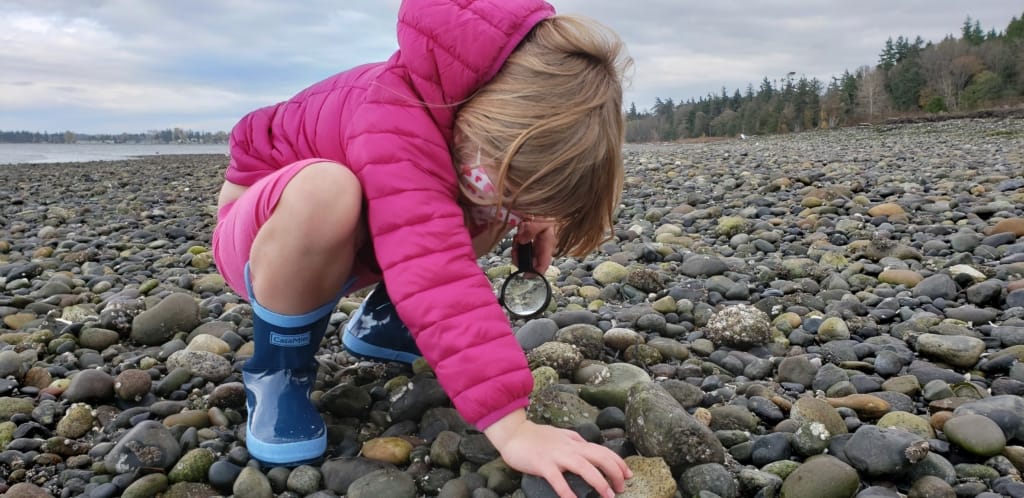
Blaine School District: Focus on Its Youngest Students
To provide select K-2 students from Blaine School District academic support and outdoor enrichment, North Cascades Institute is leading a partnership that includes Nooksack Salmon Enhancement Association, Whatcom Conservation District, RE Sources, Garden of the Salish Sea Curriculum, Animals as Natural Therapy, Allied Arts of Whatcom County, and the school district. In October, kindergarteners and first graders returned to in-person classes part time at Blaine on a hybrid A/B schedule.
Connections students were selected by their teachers as those who had qualified for academic support in the previous school year, who were eligible for the federal Free or Reduced Lunch program, had limited access to the outdoors at home, or who had low attendance during remote schooling in the Spring. One day a week, students gather in small, static cohorts with the same instructor, and spend their day exploring a specific theme intended to augment that week’s classroom-based learning targets. This program takes place at a local community church’s campus and combines outdoor and indoor activities. Students spend the morning exploring outdoors and engaging in a collaborative academic activity assigned by their classroom teacher. In the afternoons, students interact outdoors with guest speakers. This program served 32 students this fall.
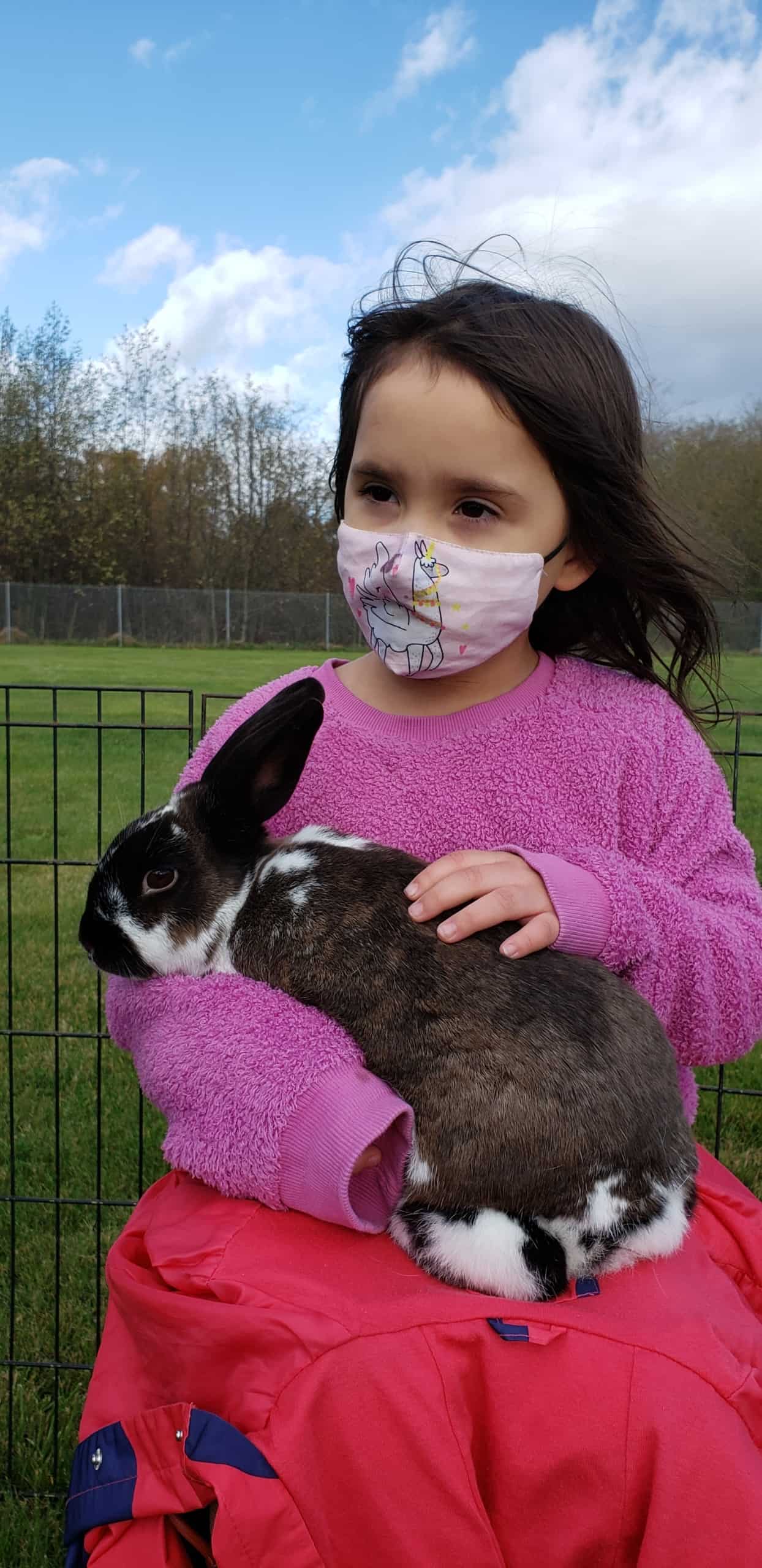
Blaine Connections students are having their first school experiences, so staff have been working to teach students how to succeed in various academic and social environments. By incorporating weekly activities like puppet shows, songs, stories, and outdoor exploration, students are learning about and discovering their natural surroundings, and fostering an appreciation for the natural world at an early age.
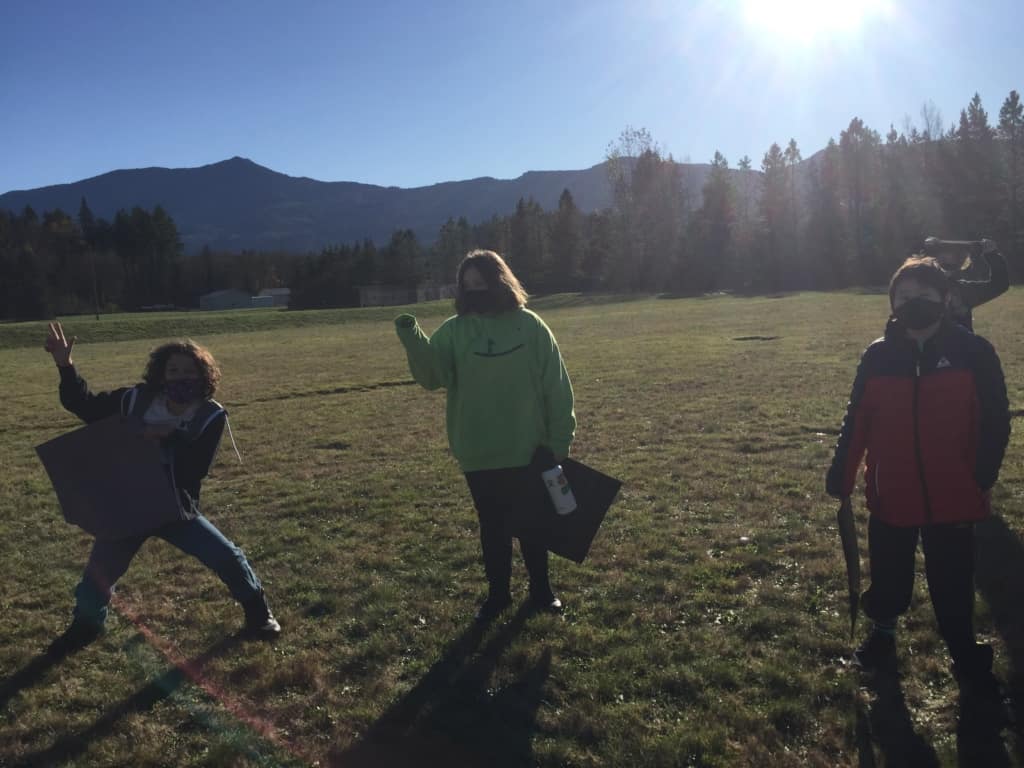
Mount Baker School District: Focus on Bridging the Gap Between Elementary School and Junior High
North Cascades Institute, in partnership with the Mount Baker School District, Nooksack Salmon Enhancement Association, and Camp Saturna, is running Connections for select 6th graders from Kendall Elementary School. This program takes place on the school’s campus and is primarily set outdoors. Students were hand-picked by their teachers based on who could benefit the most from having additional support with online learning. Connections students, in small, static groups, spend the mornings outside playing a team-building game followed by an exploration activity related to noticing seasonal changes, learning about symbiosis in ecosystems, or taking water quality measurements. After lunch, students participate in a second hands-on environmental science activity and then log online for 30 minutes for their synchronous class meeting. The program served 36 6th graders this Fall.
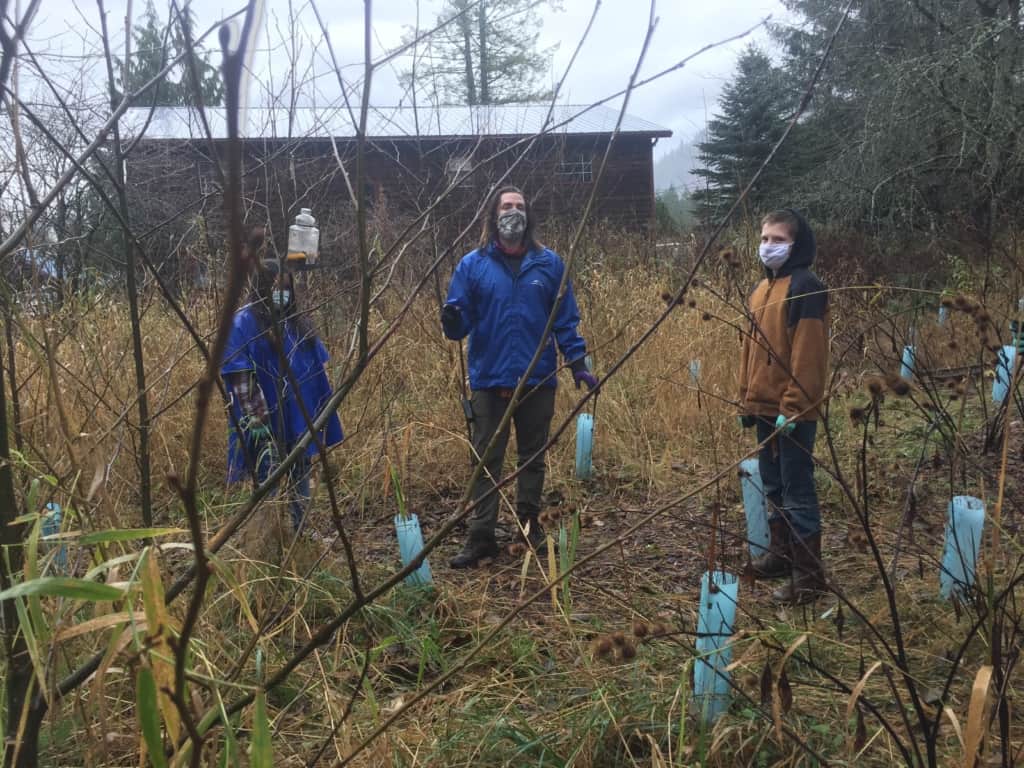
The program provides a safe way for Kendall Connections students to learn with their friends from school as well as deepen their relationship with the environment. This November, students learned about beneficial relationships between organisms in nature including the importance of native plants to our ecosystem. They spent part of the day removing invasive species from critical salmon habitat and were excited to be outside working together with their peers to care for their local ecosystem despite the rain.
With the loss of in-person school, childcare, recess, and extracurricular activities, young people are spending the vast majority of their days using electronic media to keep themselves occupied and entertained. One Connections student from Kendall Elementary said she surprised herself this Fall learning that she enjoys spending time in the woods, that typically she just spends her day playing video games.
Bellingham Public Schools: Focus on Supporting English Language Learner, Migrant, and Other Students Who Could Benefit Most from Additional Support
By providing childcare, meals, academic support, meaningful interaction with peers and trusted adults, and outdoor enrichment in lower-risk outdoor settings, the Bellingham Connections program aims to mitigate barriers to remote learning access for students who could most benefit from this support. The program was designed to build students’ capacity to succeed at home in a remote learning environment and facilitating deeper connections between students, families, and educators. Criteria considered to determine eligible students for this program included, but were not limited to: non-English speaking household, houseless or formerly houseless, student of a migrant family, low attendance or engagement in spring or fall remote learning, and teacher or specialist recommendation.
Bellingham Connections is a collaborative effort between: program lead Wild Whatcom, Vamos Outdoors Project, Common Threads, North Cascades Institute, Whatcom Mountain Biking Coalition, City of Bellingham Parks and Recreation Department, Nooksack Salmon Enhancement Association, Allied Arts, and Re Sources. This program would not be possible without the support of Bellingham Public Schools. In addition to supporting the planning and development of the program, the district provided in-kind program support including, but not limited to: transportation, meals, facilities, and support staff (e.g. custodial support, administrative liaison). This program served nearly 150 students throughout the fall and was housed at Shuksan and Kulshan middle schools.
Access to learning is a basic human right, one that the Whatcom Coalition for Environmental Education is committed to protecting for young people across the County. But the needs young people are facing right now extend far beyond just academics. Connections gives young people a respite from feelings of isolation and lack of companionship, and it serves as an opportunity for nonprofit organizations and other stakeholders from across the County to work together to come up with creative solutions to the increased needs of the community during these challenging times.
UPDATE FEBRUARY 2021: After a successful pilot this Fall, we’re excited to continue to work with elementary school students from Mount Baker and Blaine districts, incorporating a new partnership with Common Threads Farm and offering field trips to Camp Saturna.


So wonderful to hear the KNKX story about Connections this morning by Ashely Gross. https://www.knkx.org/post/some-kids-have-been-learning-outdoors-months-whatcom-county-not-seattle
My favorite excerpt:
Hazel said examining owl pellets has been the most fun she’s had in the program so far.
“I found three mole jaws. It was super cool,” she said. “And I found a pelvis bone as well, and a few claws.”
She said when she first heard they’d be picking through what is essentially owl vomit, “I was really grossed out, and I thought I wouldn’t like it at all. But then it became the best part of the day.”
Sparking that kind of excitement for learning is what school is supposed to be about.
I just listened to today’s feature on KNKX! Hearing directly from the kids who are excited to not be stuck on screens, and enjoying tromping around in the woods looking at lichen and leaves and such… FANTASTIC!
Loved especially to hear that after a stressful and isolating year, one girl says she’s “way happier” now.